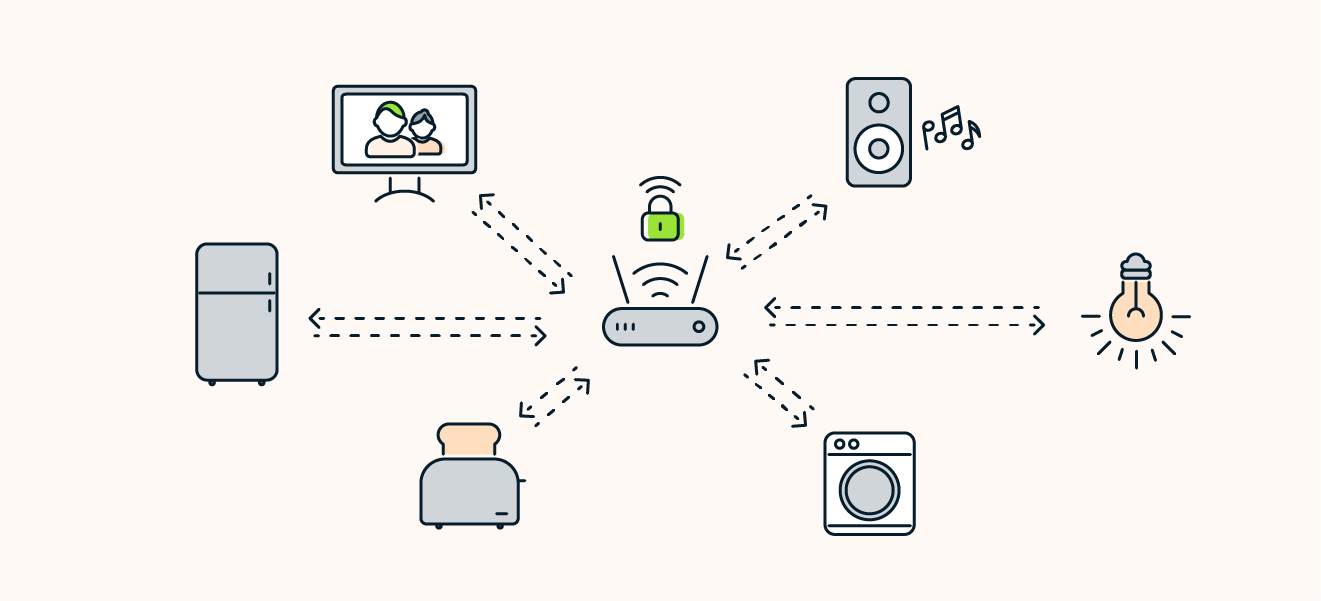What Is a VPN? Meaning, Types, and How a VPN Works
Imagine you’re surfing the web, unaware of the digital trail you leave behind. Have you ever wondered how to safeguard your online privacy and protect your sensitive information? That’s where an online VPN comes in.
Let’s uncover what VPNs are, the different types available, and how they work. Get ready to enhance your online security and freedom like never before.
Definition of VPN
A VPN, which stands for Virtual Private Network, is a secure and encrypted connection that enables you to browse the internet and access networks privately and anonymously. It functions by creating a virtual tunnel between your device and the VPN provider’s server, ensuring that your online activities are shielded from prying eyes. When you use a VPN, your data gets encrypted, turning it into a code that only the intended recipient can decipher. This encryption guarantees the privacy and security of your online actions, such as browsing history, emails, and personal information, keeping them safe from unauthorized access.
Moreover, a VPN masks your IP address, making it challenging for anyone to trace your online movements back to your physical location. In addition to safeguarding your privacy and security, a VPN allows you to bypass geographical restrictions and censorship. By using a VPN, you can access websites and online services that might be blocked or limited in your current location. This freedom means you can enjoy unrestricted access to streaming services, social media platforms, and other online content, irrespective of your physical whereabouts.
Importance of VPNs in Today’s Digital World
In today’s digital era, VPNs play a vital role in safeguarding online privacy and security. With the rise of cyber threats and data breaches, it’s crucial for individuals and organizations to protect their sensitive information. VPNs, short for Virtual Private Networks, establish a secure and encrypted connection between your device and the internet, ensuring that your online activities remain private and shielded from potential intruders.
In our interconnected world, where personal and professional data is constantly transmitted online, VPNs provide an essential layer of security. By encrypting your internet traffic and routing it through a remote server, VPNs effectively block unauthorized access to your data, making it extremely challenging for hackers or third parties to intercept your online communications.
Furthermore, VPNs enable users to bypass geographic restrictions and censorship by concealing their IP address and making it appear as if they’re browsing from a different location. This feature is especially valuable for individuals in regions with strict internet regulations or for those who want to access content limited to specific regions, such as streaming services or websites.
Types of VPNs: Remote Access VPNs
Remote Access VPNs enable individual users to securely connect to a private network from a remote location. They incorporate encryption, authentication, and tunneling protocols to safeguard the confidentiality and integrity of transmitted data.
The benefits of utilizing Remote Access VPNs include remote access to resources and applications, enhanced security and privacy, and increased productivity for remote workers.
Key Features of Remote Access VPNs
When it comes to understanding Remote Access VPNs, it’s crucial to know how they work and the benefits they offer for connecting to private networks securely from anywhere. These VPNs grant individuals the freedom to link to their organization’s network from any location worldwide. Here are the key features of Remote Access VPNs:
| Features | Description |
| Secure Access | Remote Access VPNs utilize encryption protocols to secure the connection between the user’s device and the private network, safeguarding data. |
| Authentication | Users must provide valid credentials to connect to the private network, ensuring only authorized individuals can access it. |
| Seamless | Remote Access VPNs deliver a smooth user experience, enabling individuals to access network resources as if they were physically connected. |
| Flexibility | These VPNs empower individuals to work remotely and access organizational resources, enhancing flexibility and productivity. |
| Scalability | Remote Access VPNs can accommodate a large number of remote users, making them suitable for organizations of all sizes. |
Remote Access VPNs provide the convenience of remote connectivity while upholding network security and integrity. By incorporating these key features, organizations can ensure their remote workforce accesses resources securely and effectively.
Advantages of Remote Access VPNs
Remote Access VPNs offer a valuable advantage by securely connecting individuals to their organization’s network from any location worldwide. Whether you’re working from home, a coffee shop, or traveling, a Remote Access VPN enables you to access important files, applications, and resources without being physically present in the office.
These VPNs use encryption protocols to keep your data private and shielded from unauthorized access. Additionally, they create a secure tunnel for your internet traffic, safeguarding your communication from hackers or eavesdroppers.
Types of VPNs: Site-to-Site VPNs
Site-to-site VPNs are a way to connect multiple remote networks securely over the internet. They enable encrypted communication between different locations, facilitating seamless data sharing and collaboration.
However, these VPNs come with some limitations, such as the requirement for dedicated hardware and potential performance issues due to increased network traffic.
Site-To-Site VPNs Explained
Site-to-Site VPNs, also known as router-to-router VPNs, facilitate secure communication between multiple sites or networks over the internet. Businesses often use these VPN connections to link geographically dispersed locations or branch offices. The data transmission between sites is encrypted, ensuring the privacy and integrity of the information exchanged.
Imagine a scenario where Site A, Site B, and Site C are interconnected through a Site-to-Site VPN. Each site is equipped with a router serving as a VPN endpoint, establishing a secure connection to other sites. This setup enables employees in different locations to access shared resources, such as databases or file servers, as if they were all part of the same local network.
Site-to-Site VPNs offer various benefits, which we’ll delve into in the following section.
Advantages of Site-to-Site VPNs
Utilizing Site-to-Site VPNs offers numerous benefits for businesses looking to securely connect their dispersed locations or branch offices. Here are the advantages:
- Cost-effective: Site-to-Site VPNs help businesses save money by eliminating the need for costly leased lines and dedicated hardware.
- Scalability: These VPNs allow for easy expansion of the network to include new locations without the burden of additional infrastructure expenses.
- Flexibility: Employees can securely access resources from any location with Site-to-Site VPNs, promoting remote work and boosting productivity.
- Enhanced security: Site-to-Site VPNs employ advanced encryption protocols to safeguard data transmission, ensuring the protection of sensitive information.
Limitations of Site-to-Site VPNs
Site-to-Site VPNs come with several advantages for businesses, but it’s important to acknowledge their limitations as well. A significant drawback is the need for dedicated hardware and infrastructure. To establish and maintain the encrypted connection, routers or firewalls are typically required at each location, which can be costly and time-consuming, especially for small businesses with limited resources.
Additionally, scalability may be a concern for Site-to-Site VPNs. Managing and configuring the VPN becomes more complex as the number of sites increases, presenting challenges for businesses with numerous remote locations or branches. Moreover, performance issues may arise, especially when dealing with large data transmissions. The encryption and decryption processes can introduce latency and reduce network speeds.
Businesses should carefully assess these limitations and explore alternative VPN solutions if needed.
Types of VPNs: Mobile VPNs
Mobile VPNs offer a secure and encrypted way for mobile devices to connect to private networks remotely. They cater to smartphones, tablets, and other on-the-go gadgets, ensuring user privacy and data security. Discover why mobile VPNs are a must-have for those valuing freedom and privacy:
- Enhanced Security: By encrypting your internet connection, a mobile VPN shields your data from hackers, government surveillance, and other prying entities. This protection is vital, especially when using public Wi-Fi networks susceptible to cyber threats.
- Access to Restricted Content: With a mobile VPN, you can sidestep geo-blocks and access content unavailable in your region. Whether streaming favorite shows while traveling or browsing censored websites, a mobile VPN grants you unrestricted access.
- Defense Against Malicious Apps: Mobile VPNs fortify security by thwarting malicious apps from compromising your personal data. By detecting and blocking suspicious activities, they safeguard your sensitive information from cyber attacks.
- Anonymity and Privacy: By masking your IP address, a mobile VPN enables anonymous internet browsing. It prevents websites, advertisers, and ISPs from tracking your online movements, allowing you to explore the web incognito and without leaving digital traces.
How VPNs Ensure Online Privacy
In order to protect your privacy online, VPNs use advanced encryption methods to secure your internet connection and safeguard your sensitive information. When you connect to a VPN, all your online activities are encrypted, making it extremely difficult for anyone to intercept and decipher your data. This ensures that your sensitive information remains private and inaccessible to unauthorized individuals.
VPNs utilize encryption techniques like AES (Advanced Encryption Standard) and RSA (Rivest-Shamir-Adleman) to scramble your data, rendering it unreadable to potential hackers or eavesdroppers. Even if someone manages to intercept your data, they won’t be able to make sense of it or misuse it in any way.
Moreover, VPNs also conceal your IP address, adding an extra layer of privacy to your online presence. By hiding your IP address, VPNs prevent websites, advertisers, and others from tracking your online behavior and gathering personal information about you.
Additionally, VPNs establish a secure tunnel between your device and the VPN server, ensuring that your data travels through a protected pathway. This prevents cybercriminals and malicious individuals from monitoring your connection and stealing your confidential data.
How VPNs Bypass Geo-Restrictions
To get around geo-restrictions, VPNs use a method called tunneling. This technique encrypts your internet traffic and directs it through a server in a different country. By doing this, VPNs make it seem like your connection is coming from the location of that server.
This allows you to access content that may be blocked in your area. By bypassing location-based restrictions, VPNs help you overcome blocks imposed by streaming services, websites, and other online platforms.
Circumventing Geographic Restrictions
VPNs help you bypass geographic restrictions by creating a secure connection that hides your true location. Here’s how VPNs assist you in overcoming these limitations:
- Virtual Presence: With a VPN, you can appear to be browsing from a different location, granting you access to content and services that might be restricted in your region.
- Geo-Spoofing: By concealing your IP address, a VPN fools websites into thinking you’re accessing them from elsewhere, enabling you to get around geo-blocks.
- Unblocking Content: VPNs allow you to reach streaming platforms like Netflix or Hulu, which may have region-specific content unavailable in your area.
- Secure Access: In addition to bypassing restrictions, VPNs offer security by encrypting your data and safeguarding your online activities from prying eyes.
With a VPN, you can explore the internet freely, bypassing geographic restrictions and accessing content that would otherwise be out of reach.








